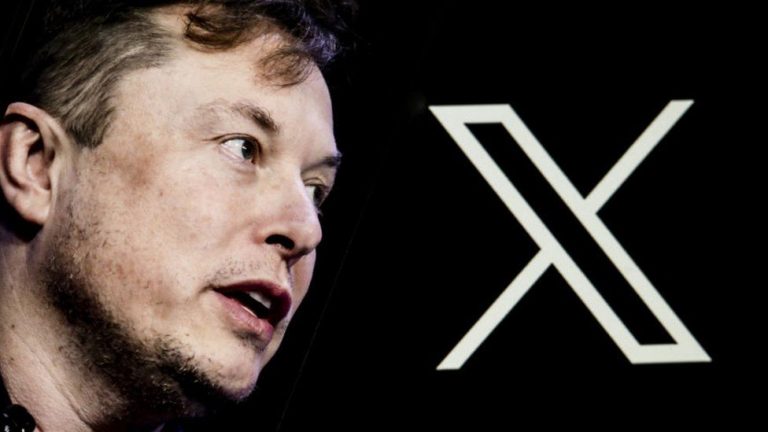
Elon Musk’s social media platform, X (formerly Twitter), faces a significant setback as a growing number of companies plan to reduce advertising spending on the platform in 2025.
A global survey by market research firm Kantar revealed that a net 26% of marketers intend to cut ad budgets on X, marking the biggest pullback from any major global ad platform. This comes amid concerns that the platform’s association with extreme content could damage brands’ reputations.
According to Kantar’s findings, only 4% of marketers believe X provides adequate “brand safety” — the assurance that their ads won’t be displayed alongside harmful or extreme content. This figure starkly contrasts with the 39% of marketers who believe Google provides such security.
Register for Tekedia Mini-MBA edition 19 (Feb 9 – May 2, 2026): big discounts for early bird.
Tekedia AI in Business Masterclass opens registrations.
Join Tekedia Capital Syndicate and co-invest in great global startups.
Register for Tekedia AI Lab: From Technical Design to Deployment (next edition begins Jan 24 2026).
The report reflects a trend that has been years in the making, with advertisers increasingly shifting their budgets away from X. Gonca Bubani, Kantar’s global thought leadership director for media, said, “Advertisers have been moving their marketing spend away from X for several years,” and added that “a turnaround currently seems unlikely.”
Bubani pointed to X’s unpredictability and rapid changes as reasons for the lack of confidence among advertisers, with the platform struggling to guarantee consistent brand safety.
While advertisers are pulling away, Kantar’s survey indicates that consumers feel more positive about the platform, largely because there are fewer ads than before. However, this shift in consumer sentiment has not been enough to offset advertisers’ concerns about the environment their brands are associated with.
Musk’s Efforts to Win Back Advertisers
In June, Musk attempted to rebuild relationships with advertisers at the Cannes Lions, the world’s largest annual advertising festival. He appeared conciliatory in an interview with WPP’s CEO, Mark Read, where he acknowledged that advertisers had a right to control the content in which their ads appear next. This was a departure from Musk’s more confrontational stance in 2022 when he told advertisers to “go f**k yourself” in response to their concerns about the platform’s content moderation.
However, the situation worsened when Musk filed a lawsuit last month against the influential ad industry group, the Alliance for Inclusive and Multicultural Marketing (AIMM), which includes high-profile members like Unilever, Mars, and CVS. The lawsuit accused the group of conspiring to “boycott” X.
An X spokesperson responded to the concerns, asserting that the platform “now offers stronger brand safety, performance, and analytics capabilities than ever before.” The company also highlighted that X’s brand safety rate is “on average 99%,” a figure validated by digital advertising analytics firms DoubleVerify and Integral Ad Science.
This claim, however, has done little to reverse the trend of declining ad revenue, with major brands pulling back due to worries over content moderation and platform direction since Musk’s $44 billion acquisition in 2022.
Growing Apathy for X Amid Its Financial Struggle
Apathy for X is surging across the globe. Once hailed as a transformative platform, X now faces growing disillusionment, especially in Europe, where a potential confrontation over hate speech is brewing. This situation is building just as the social media company grapples with financial turmoil, struggling to break even.
The pullback of major advertisers on X since its acquisition has led to its poor financial performance, compounding the weight of the massive loans Musk leveraged to take the company private. The fallout of this merger deal has been felt far beyond the digital realm, extending into the banking sector, where it has become a financial nightmare.
The loans Musk used for the purchase, about $13 billion, have been branded by The Wall Street Journal as the worst merger-finance deal for banks since the financial crisis of 2008-09. The seven banks that handed out this enormous sum—among them Bank of America and Morgan Stanley—are now facing the fallout of a deal gone sour.
Typically, when banks finance takeovers, they try to offload that debt quickly to other investors, minimizing their own risk. But in this case, the debt has remained stuck, or “hung,” on their balance sheets, unable to be sold without significant losses.
X’s poor financial performance has severely limited the attractiveness of the debt. Banks, which had once confidently backed Musk’s ambitious takeover, now find themselves saddled with liabilities they can’t unload. As the company’s struggles deepen, the loans they once considered a golden ticket have morphed into burdens, making this one of the most disastrous merger-finance deals in recent history.
Adding to these financial woes is the broader global backlash against X’s content moderation—or lack thereof. Europe, in particular, is gearing up for a possible faceoff with Musk over how X handles hate speech. The European Union has taken an increasingly hard line on digital platforms, implementing stricter regulations to curtail the spread of harmful content.
Musk’s hands-off approach has raised alarms in Brussels, where regulators are preparing to test the limits of X’s content policies against their own robust legal framework. Should the platform fail to comply, hefty fines or outright bans could follow.
Even outside Europe, concerns over hate speech, misinformation, and X’s general unpredictability have escalated. Brazilian president Luiz Inácio Lula da Silva recently criticized Musk’s approach to running the platform, labeling it a “far-right anything goes” agenda. Brazil even blocked access to X last weekend after Musk refused to appoint a new legal representative in the country, intensifying a months-long battle over what constitutes free speech.
The Kantar report further underscores X’s branding challenges, showing that it ranked outside the top 10 platforms for trust and perceived innovation in advertising. The study revealed that YouTube remains the top choice for marketers when it comes to ad platforms, while Amazon and TikTok are favored by consumers. X, by contrast, lags far behind these platforms, particularly in terms of trust and innovation.



